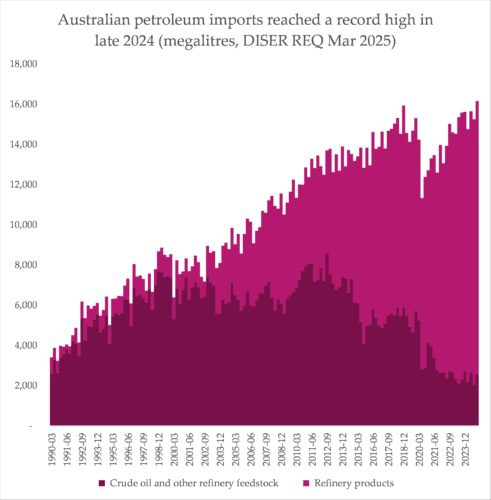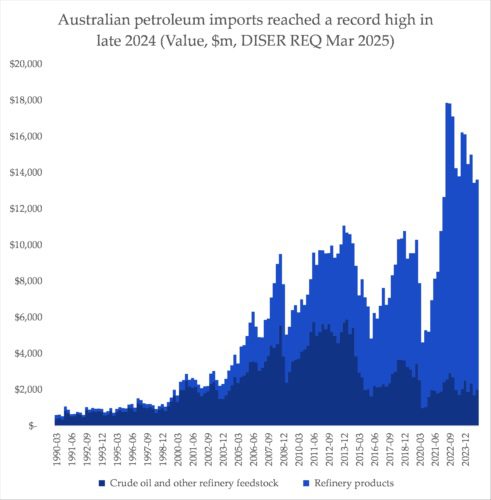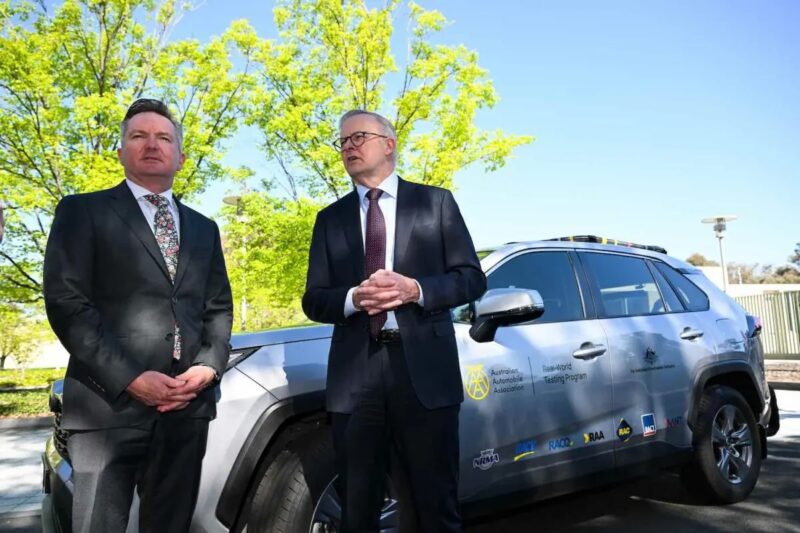A key decision to be made in the upcoming election will be the government’s approach to road transport.
Labor’s National Vehicle Efficiency Scheme (NVES) applies gradual (and arguably, too slow) policy pressure on the companies selling vehicles to eventually cleaner cars over time. While its loopholes have been criticised by EV groups, it was generally welcomed as a ‘step in the right direction’.
A concerning development has been a rising chorus of wrecking by car manufacturers intent on pushing for a Coalition win in May.
The Federal Chamber for Automotive Industries, FCAI, has been presenting weak vehicle sales numbers in the first few months of the year as evidence there is ‘low demand’ for EVs. FCAI was recently exposed as having relied on data for a vehicle that’s no longer on sale when criticising the scheme.
The Coalition plans to scrap the fines in the NVES, and Trump’s tariffs have given car manufacturers another reason to lobby for an even worse weakening of Australia’s nascent vehicle emissions standards.
However, a new report from the Department of Industry, Science, Energy and Resources (DISER) contains a buried datapoint that is very relevant to this debate, and that hasn’t yet been covered.
Australia is extremely reliant on imported oil to fuel its large road, air and sea transport fleets, with most of the oil being used for road transport. The new update from DISER shows that for the last quarter of 2024, Australia imported more petroleum products than it ever has in the past: 
While oil price has fallen from its post-COVID peak (and Trump’s tariffs are helping that along), the total amount Australia pays to import fuel for transport is still 50% higher than it was ten years ago:

The need for an urgent transition away from oil seems to be coming to a head. Most of Australia’s notoriously weak strategic fuel reserves are not, as you might expect, located in Australia but actually stored in the United States.
Australia’s vehicle fleet is also notoriously oversized, with fuel-hungry, emissions intensive vehicles that are far bigger than consumers really need- not just making the roads more dangerous but further worsening this reliance on imports during one of the most unstable geopolitical times in recent history.
The Coalition wants to move backwards, and Labor don’t seem to want to move forwards any faster; neither are responding to the urgency of this moment.
Even Labor’s welcome but insufficient scheme would be a welcome start towards shifting away from reliance on such a shockingly expensive fuel; one that exposes the country to price shocks and fluctuations.

Ketan Joshi has been at the forefront of clean energy for eight years, starting out as a data analyst working in wind energy, and expanding that knowledge base to community engagement, climate science and new energy technology. He writes for The Driven’s parent site, RenewEconomy, and has also written for the Guardian, The Monthly, ABC News and has penned several hundred blog posts digging into climate and energy issues, building a position as a respected and analytical energy commentator in Australia. He’s spoken at the Ethics Centre IQ2 debates on the need for urgent decarbonisation, he’s served as an subject matter expert on national television, and has a wide following on social media around energy and climate.

